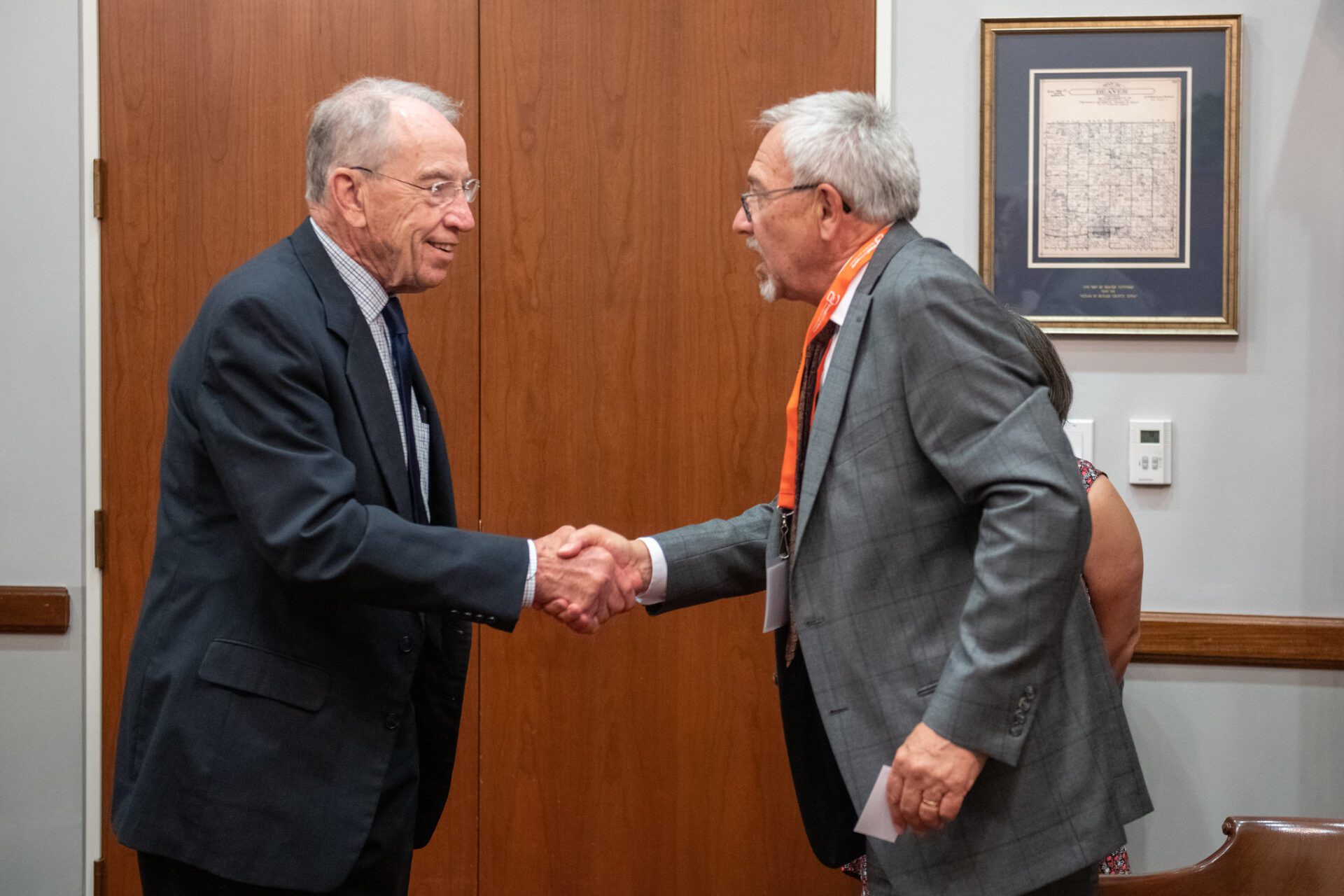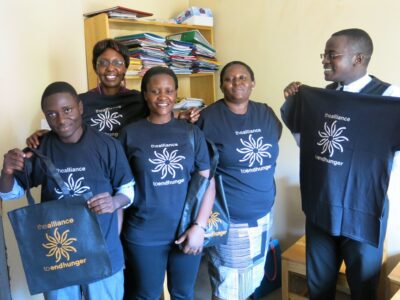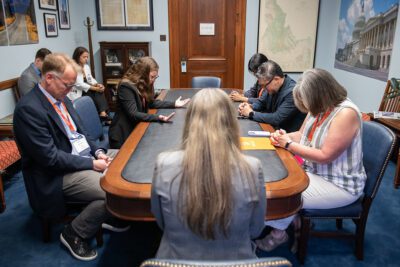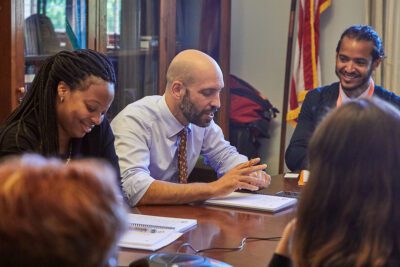
Partners & Coalitions
Ending hunger takes the work of many individuals and organizations. That’s why Bread joins with partners, works in coalitions, and helps to build up the advocacy capacity of other organizations. Our overall goal is to end hunger in the U.S. and around the world, rather than building up our own organization.
Bread has deep connections to church bodies and agencies across the U.S. We work with other Christian and faith-based organizations in Washington, D.C., and in communities across the country.

Faith Organizations
We work with these faith-based organizations on a regular basis:
- The African Methodist Episcopal Church
- Assembly of Canonical Orthodox Bishops of the United States of America
- Baptist World Alliance
- American Baptist Churches USA
- Catholic Charities
- Catholic Relief Services
- Christian Churches Together
- Christian Methodist Episcopal Church
- Church Women United
- Church World Service
- Cooperative Baptist Fellowship
- Christian Church (Disciples of Christ)
- The Episcopal Church
- Evangelical Covenant Church and Covenant World Relief & Development
- Evangelical Lutheran Church in America (ELCA)
- JustFaith Ministries
- Leadership Conference of Women Religious
- National Association of Evangelicals
- National Baptist Convention, USA, Inc.
- National Council of Churches
- National Latino Evangelical Coalition
- Presbyterian Church (USA)
- Progressive National Baptist Convention
- Salvation Army
- Samuel DeWitt Proctor Conference
- The United Church of Christ
- United Methodist Church
- United States Conference of Catholic Bishops
- World Council of Churches
- National Catholic Association of Diocesan Directors for Hispanic Ministry
- National Catholic Council for Hispanic Ministry
- Roundtable Association of Catholic Diocesan Social Action Directors
- Latino Christian National Network
- African Methodist Episcopal Zion Church
- Church of God in Christ
- La Red – National Catholic Network of Pastoral Juvenil Hispana
- Christian Community Development Association
- Conference of National Black Churches
- Congreso RED
- Friends Committee on National Legislation
- United Church of Jesus Christ (Apostolic)
- Sojourners
- African American Clergy Network – Skinner Leadership Institute
- International Orthodox Christian Charities
- National Black Evangelical Association

Other organizations that share our core concerns:
We have strong partnerships with a network of organizations that advocate on global poverty and development issues. These include:

Coalitions for Legislation and Policy Work
Bread currently plays a leadership role in the following coalitions:
- 1,000 Days Advocacy Working Group
- Circle of Protection – a coalition of Christian leaders who are heads of denominations, agencies, organizations, and educational institutions
- Evangelical Immigration Table
- Food Policy Working Group
- Interfaith Working Group on Foreign Assistance
- Interfaith Immigration Coalition
- Interreligious Working Group on Domestic Human Needs
- Modernizing Foreign Assistance Network
- Scaling Up Nutrition (SUN) Civil Society Network
- Vote to End Hunger Coalition

Partner with Us
We always welcome partnerships with congregations, faith groups, and other advocacy groups.
- If your congregation wants to make a deeper commitment to advocacy for hunger as a Covenant Church, or to partner with us on projects or events, contact us at [email protected].
- If you are interested in working with Bread on specific public policy issues, please contact Julie Bautista at [email protected].
